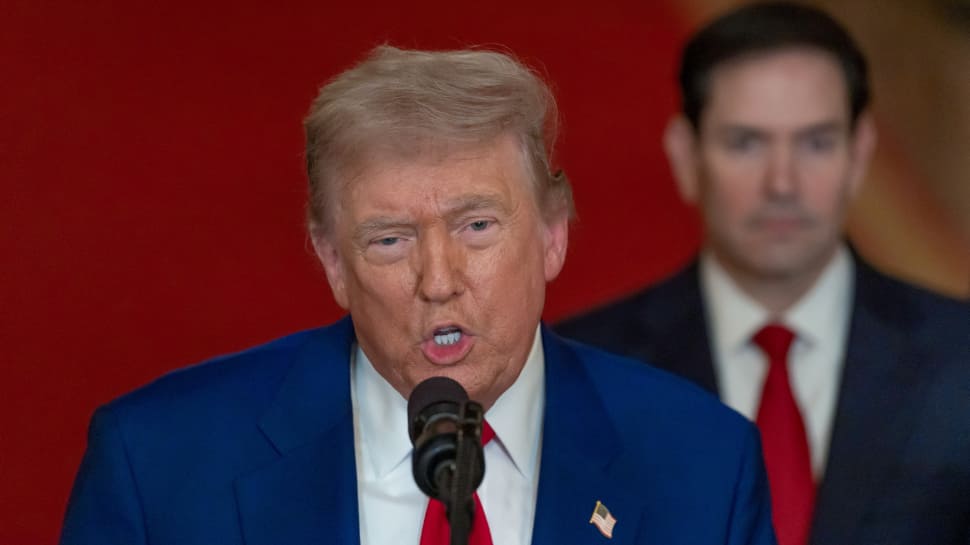In the ongoing Russia-Ukraine conflict, the question of territorial concessions as part of a peace deal remains highly contentious. Recently, the European Union’s top diplomat, Kaja Kallas, strongly emphasized that Ukraine should not have to relinquish any territory to Russia in the pursuit of peace. Speaking after a meeting of foreign ministers in Luxembourg, Kallas warned that allowing Russia to take control of Ukrainian land through force would set a dangerous precedent, suggesting that it would encourage aggression by showing that military invasion can achieve territorial gains. She underscored the importance of upholding international law to prevent such outcomes.
This statement from Kallas comes amid renewed discussions about possible ceasefires and negotiations to end the conflict. On Sunday, U.S. President Donald Trump publicly called for an immediate halt to fighting between Russia and Ukraine. During remarks made aboard Air Force One, Trump proposed that the current battle lines be frozen as the starting point for negotiations. This would mean accepting Russian control over the territories it currently occupies, including parts of the Donbas region, a significant industrial area in eastern Ukraine. Trump’s comments followed his meetings with both Ukrainian President Volodymyr Zelenskyy at the White House and a phone conversation with Russian President Vladimir Putin.
However, Ukraine’s leadership has consistently rejected the notion of ceding territory to Russia. Since Russia’s full-scale invasion began on February 24, 2022, President Zelenskyy has repeatedly insisted that no part of Ukraine, including the Donbas region, be forfeited to Moscow. This stance remains firm despite international pressure or proposals suggesting territorial compromises as a path to peace.
In a show of solidarity with Ukraine, several European Union countries issued a joint statement on Tuesday endorsing President Trump’s call for an immediate cessation of hostilities and designating the current front line as the baseline for future negotiations. The statement, signed by a notable group of leaders including Zelenskyy, UK Prime Minister Keir Starmer, German Chancellor Olaf Scholz, French President Emmanuel Macron, Italian Prime Minister Giorgia Meloni, Polish Prime Minister Donald Tusk, EU President Ursula von der Leyen, European Council President Charles Michel, and several Nordic leaders, highlighted the necessity of maintaining pressure on Russia’s economy and defense sector. They pledged to maximize the use of Russia’s frozen sovereign assets to provide Ukraine with the resources needed to sustain its defense and recovery efforts.
EU President Ursula von der Leyen took to social media platform X (formerly Twitter) to share the joint statement, emphasizing the unity of European nations in seeking a just and lasting peace for Ukraine. She expressed strong support for U.S. efforts in this direction and stressed that Ukraine must be in the strongest possible position before, during, and after any ceasefire. Von der Leyen noted that the issue of peace and security in Ukraine would be central topics at upcoming European Council meetings and gatherings of the “Coalition of the Willing,” a group of countries committed to supporting Ukraine.
Meanwhile, diplomatic engagements between Russia and the United States remain uncertain. Russian Foreign Minister Sergei Lavrov stated on Tuesday that it was premature to discuss timing for a potential meeting with U.S. Secretary of State Antony Blinken. Similarly, Russian Deputy Foreign Minister Sergey Ryabkov confirmed that Russia is working on the issues discussed in a recent phone call between Lavrov and U.S. Secretary of State Marco Rubio. However, according to CNN, citing White House sources, a planned meeting between Lavrov and Rubio, expected to take place before a proposed summit between Presidents Putin and Trump in Budapest, Hungary, has been put “on hold for the time being.” This development signals ongoing complexities in diplomatic communication and the challenges in arranging high-level talks amid the conflict.
The debate over whether Ukraine should cede territory to Russia is not merely a matter of negotiation tactics but touches on fundamental principles of sovereignty and international law. Kallas articulated that surrendering territory under pressure threatens the norms that protect nations from aggression. She remarked, “If we just give away the territories, then this gives a message to everybody that you can just use force against your neighbors and get what you want.” This viewpoint reflects concerns that any concession might embolden Russia or other states to disregard peaceful dispute resolution mechanisms.
President Trump’s suggestion to freeze the front lines aligns with a pragmatic approach to halt fighting quickly, but it contrasts sharply with Ukraine’s insistence on restoring its territorial integrity fully. The current front line runs through the Donbas, an area that has been a flashpoint since

